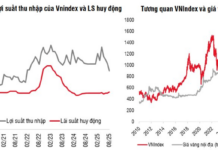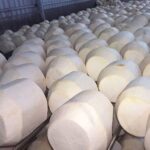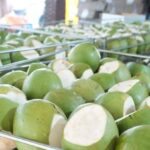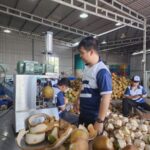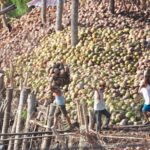The Coconut Trees of Ben Tre: A Sweet Success Story
The sounds of bustling labor echo through the Agricultural Services Cooperative in Luong Hoa, Giong Trom District, Ben Tre Province, as dedicated workers gather each morning. With over 50 laborers present, the cooperative is a hive of activity, with some workers skillfully peeling coconuts, while others extract the delicate coconut meat. The production process is a well-coordinated dance, with each worker contributing to the creation of valuable coconut products.
Among them is Tran Hoang Tan, whose face shines with perspiration as he manually peels coconuts. With a cheerful demeanor, he shares, “We get paid based on our productivity, so the more we work, the more we earn. I usually make over 300,000 VND per day, and I plan to work until Tet. Coconuts are in high demand now; a cluster of 12 coconuts can sell for up to 120,000 VND. I’m looking forward to a better Tet holiday this year.”
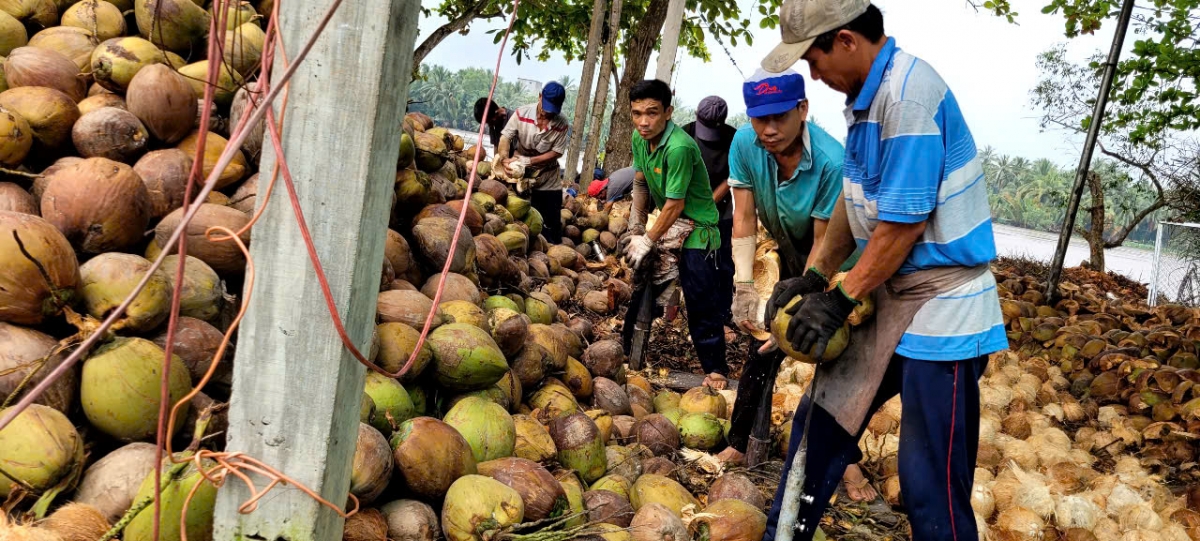
Busy workers at the Luong Hoa Agricultural Cooperative, Giong Trom District
At present, businesses are purchasing dried coconuts for export at prices ranging from 120,000 to 140,000 VND per cluster, depending on quality and location. Fresh coconuts (coconut xiêm) fetch prices between 70,000 and 80,000 VND per cluster, while export-quality coconut xiêm can reach nearly 100,000 VND per cluster—a significant increase compared to the same period last year. However, the recent coconut harvest has seen a decrease in yield, leading businesses to organize direct collection from gardens to meet their supply needs.
Tran Thi Dung, owner of a 2-hectare coconut garden in Ap 2, Luong Hoa, shares her experience: “I recently sold dried coconuts for 120,000 VND per cluster, and now some traders are offering 130,000 VND. In Mo Cay, prices have even reached 170,000 VND per cluster. This year’s coconut prices are much better than last year’s, despite a lower yield.”
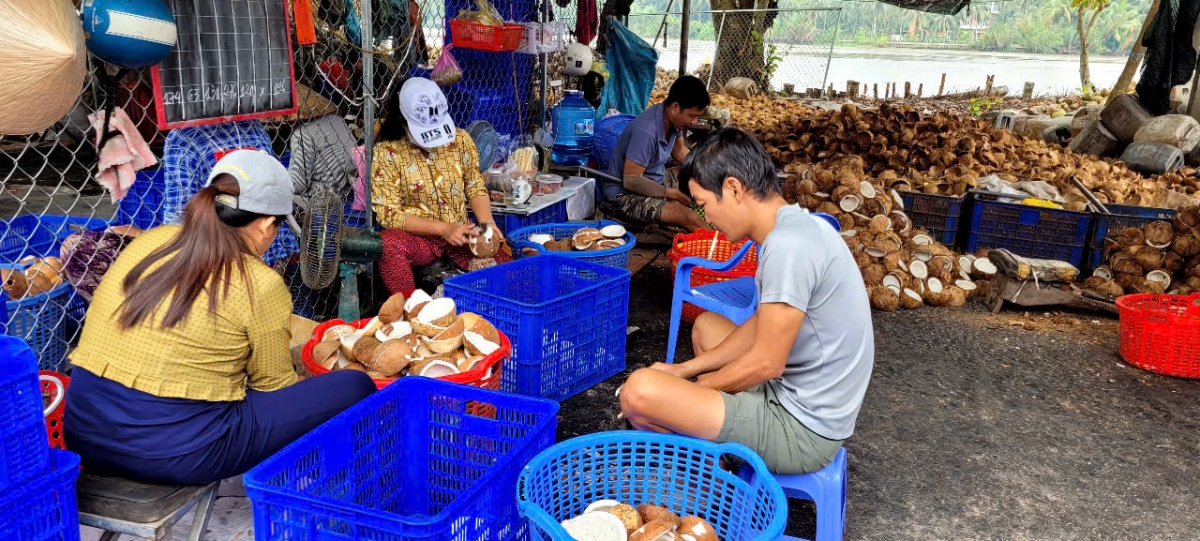
Dried and shredded coconut meat product
The atmosphere at businesses and cooperatives specializing in coconut procurement in Mo Cay Nam and Ben Tre City is equally vibrant. With strong coconut exports, both businesses and farmers are reaping substantial profits. Bui Thanh Hieu, Chairman of the People’s Committee of Luong Hoa Commune, where over 1,100 hectares of coconuts are cultivated, and two-thirds of households depend on coconut farming, shares his insights: “With the current coconut prices, farmers’ incomes have significantly increased. Those with larger coconut gardens will have a more prosperous Tet holiday this year, as they can sell more of their produce. This has brought great joy to our community.”
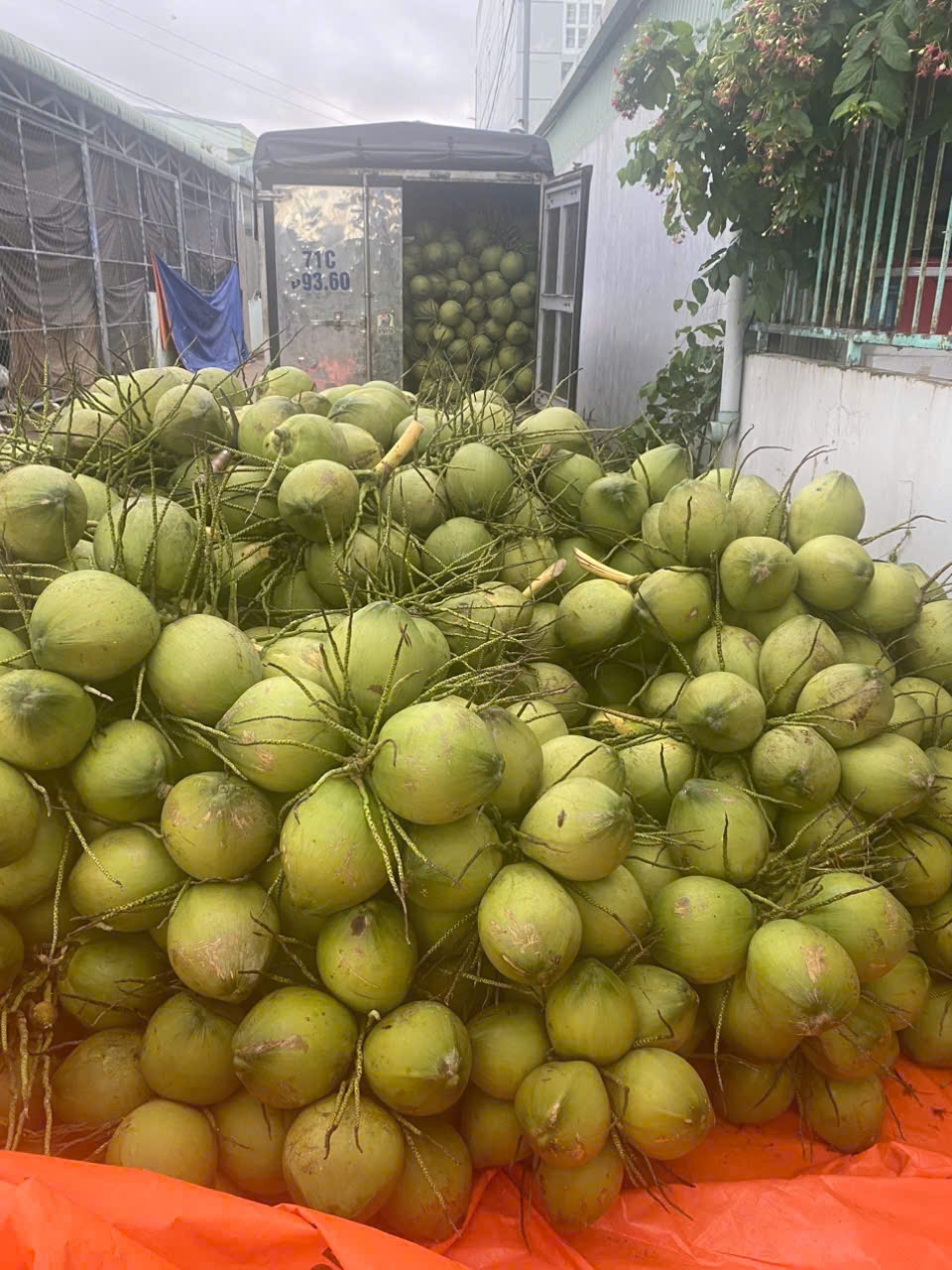
Ben Tre’s fresh coconuts exported to the Chinese market
Ben Tre, known as the “Coconut Kingdom,” boasts over 80,000 hectares of coconut trees, accounting for 88% of the Mekong Delta’s coconut area and nearly 42% of the country’s total. The coconut industry supports the livelihoods of over 200,000 households in the province. To date, Ben Tre’s coconuts and coconut products have reached 130 countries and territories worldwide, with approximately 150 businesses involved in production and trade. Among them, eight large-scale enterprises purchase coconuts from farmers for export to markets such as the US, Canada, South Korea, China, Japan, and the EU.
Ben Tre’s farmers have embraced organic coconut production models, partnering with businesses and 28 agricultural cooperatives across more than 16,000 hectares of coconut gardens. In 2024, the province’s coconut industry achieved an export value of over 516 million USD. Notably, fresh coconuts have been successfully exported to the Chinese market through official channels.
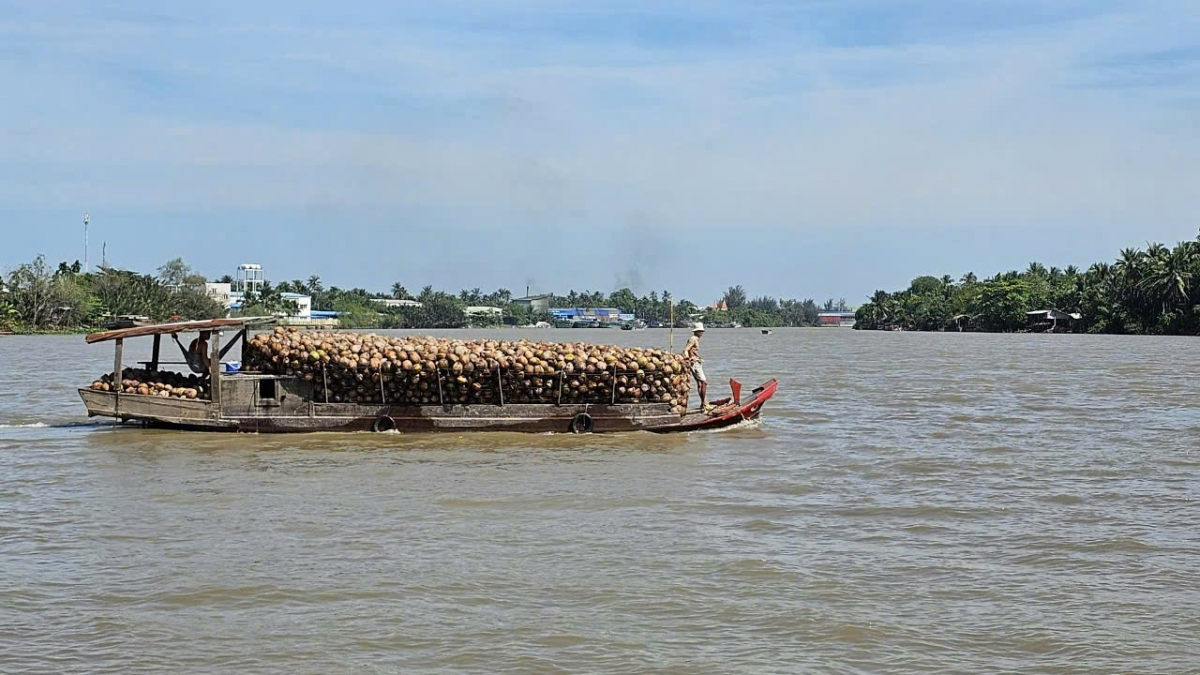
Traders using boats to transport coconuts for export processing
While the current high coconut prices bring significant profits to farmers, businesses face a supply shortage and are forced to source additional coconuts from outside the province to fulfill their export contracts. According to Nguyen Van Be Sau, Director of the Ben Tre Department of Industry and Trade, “Coconut prices are quite high this year, and both dried and fresh coconuts have favorable market conditions. This has brought joy to our farmers. However, due to a decrease in yield, known as ‘coconut hanging,’ businesses have to import coconuts from other provinces to meet export demands. The province is encouraging the improvement of coconut gardens and the conversion of less productive fruit tree areas and even rice fields into coconut plantations.”
The coconut trees of Ben Tre have firmly established their place in the export market. The focus now lies in sustaining and expanding value chain production models, enhancing coconut yield and quality, and diversifying coconut-derived products. By doing so, we can ensure a vibrant coconut industry in Ben Tre, empowering farmers to prosper and thrive in their beloved homeland.
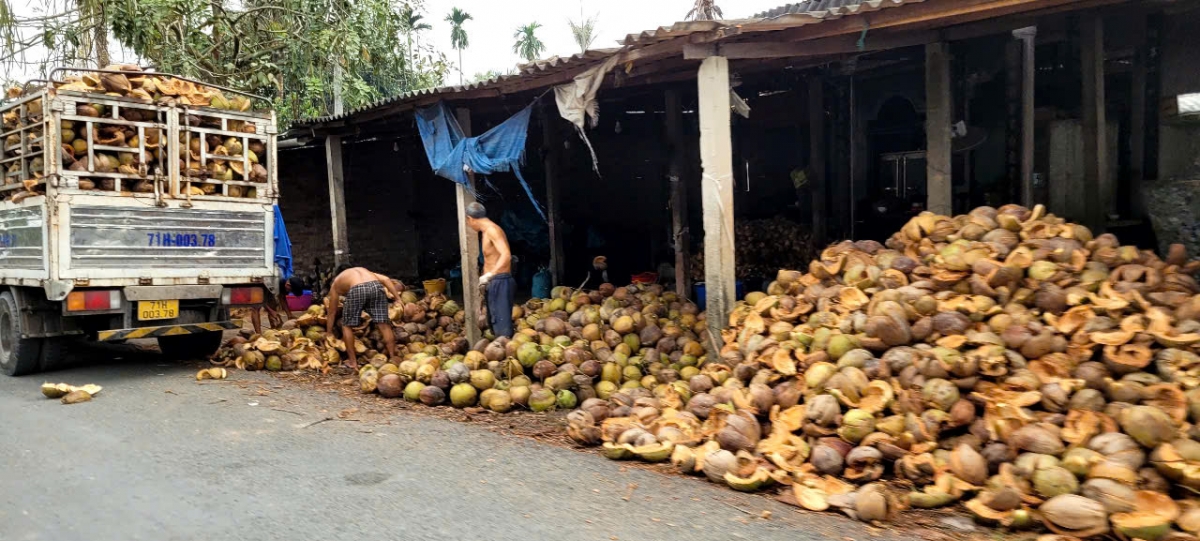
Ben Tre’s coconuts are gaining recognition in the export market.
The Secret Million-Dollar Fruit of Vietnam: Captivating Americans and Booming in Exports by Over 1,000%.
Vietnam is the third-largest supplier of this fruit to the United States, offering extremely competitive prices.
The Ultimate Guide to Exporting Fresh Coconut from Tien Giang Province: Unlocking 49 Codes to Success in the Chinese Market
To meet the demands of exports and enhance the value of fresh coconuts, the General Administration of Customs China (GACC) has approved a list of region codes and packing facility codes for fresh coconuts from Tien Giang Province. Notably, 40 region codes have been assigned to coconut-growing areas, with the Cho Gao Coconut Cooperative alone receiving 10 codes. Additionally, 9 packing facility codes have been granted.
Coconut Trees Bring in Over Half a Billion Dollars Annually for Ben Tre Province
Ben Tre province boasts the largest coconut acreage in the country, with over 79,000 hectares of lush coconut groves, contributing significantly to the local economy with an annual revenue of over $500 million. This vast coconut cultivation also presents a unique opportunity for Ben Tre to venture into the carbon credit market, leveraging the carbon sequestration potential of these majestic trees.



















